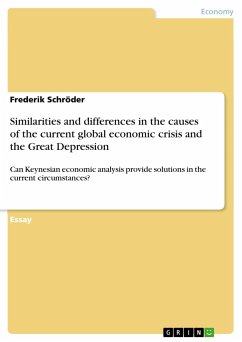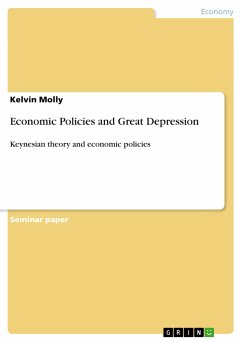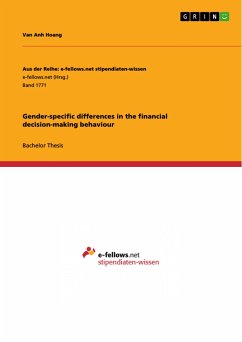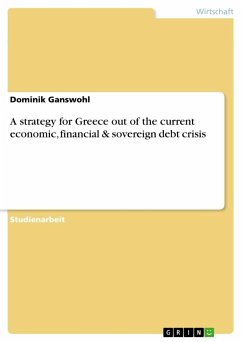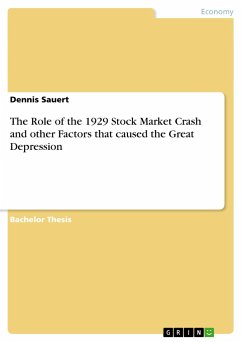Essay from the year 2009 in the subject Economics - Finance, grade: A, University of Otago, language: English, abstract: The global economy is currently facing a severe recession with falling output, rising unemployment and a high degree of uncertainty. Parallels can be drawn between the causes of the current crisis and those of the Great Depression of the 1930s. The most salient causes of the Great Depression were a speculative bubble, the resulting stock market crash of 1929 and misguided policy reactions by central banks and governments. Tight monetary policy and a fallback to protectionism led to the collapse of the international economy. This further created business uncertainty, which together with financial disintermediation and bank runs resulted in shattered confidence levels and a subsequent, hardly stoppable, downward spiral of economic activity. Similarly, the current economic crisis began with a speculative asset bubble crash, followed by a shortage of credit supply and extremely low confidence levels and high uncertainty. However, due to an improvement in theunderstanding of macroeconomics policy makers' toolkits have been enhanced. This has led to appropriate reactions by fiscal authorities and central banks providing liquidity to markets. However, specific circumstances are unique and errors were made nonetheless. To spare the world from "The Great Depression II" Keynesian fiscal stimuli in form of tax cuts targeted at liquidity constrained agents are necessary. Monetary policy can only be effective to stimulate aggregate demand when confidence is reestablished and the lending mechanisms start working again.

